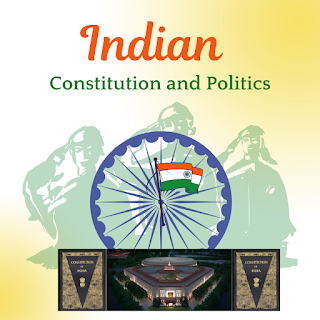In the vast landscape of global politics, the Indian Constitution stands out as a beacon of diversity and democracy. Crafted with meticulous care and foresight, it embodies the aspirations and struggles of a nation transitioning from colonial rule to sovereign governance. Beyond its legal framework, the Indian Constitution is a living document that reflects the evolving ethos of a pluralistic society. Let’s embark on a journey through its intricate tapestry and explore the dynamic interplay between constitutional principles and political realities in India.
### The Foundation: Preamble and Fundamental Rights
At the heart of the Indian Constitution lies its Preamble, which encapsulates the ideals of justice, liberty, equality, and fraternity. It sets the tone for a nation committed to securing the dignity and rights of its citizens. Embedded within this vision are the Fundamental Rights, enshrined in Part III of the Constitution, which guarantee civil liberties such as the right to equality, freedom of speech, and protection against discrimination. These rights serve as a bulwark against tyranny and ensure that the government remains accountable to the people.
### Federalism and Diversity
India’s federal structure, as outlined in the Constitution, reflects its cultural and linguistic diversity. With a three-tiered system of government comprising the Union, States, and local bodies, power is distributed among various levels to accommodate regional aspirations while maintaining national unity. This arrangement not only fosters decentralization but also allows for the accommodation of diverse identities within the framework of a unified nation.
### Parliamentary Democracy in Action
At the core of India’s political system is its parliamentary democracy, where the executive is accountable to the legislature. With a bicameral legislature at the national level and similar structures in the states, the Indian polity thrives on vibrant debates, coalition politics, and electoral democracy. Regular elections, conducted at multiple levels, ensure the peaceful transfer of power and provide citizens with a platform to express their will.
### Challenges and Imperatives
Despite its lofty ideals, the Indian Constitution faces several challenges in its implementation. Persistent poverty, social inequality, and political corruption pose significant hurdles to achieving the envisioned principles of justice and equality. Moreover, communal tensions, regional disparities, and identity politics often strain the fabric of Indian democracy, testing its resilience and adaptability.
### The Imperative of Constitutional Evolution
In confronting these challenges, the Indian Constitution demonstrates its capacity for evolution and adaptation. Through judicial activism, constitutional amendments, and social movements, it has expanded its ambit to include marginalized communities, protect the environment, and promote social justice. The reinterpretation of fundamental rights in light of contemporary realities reflects the enduring relevance of the Constitution in shaping India’s trajectory.
### Conclusion: Navigating the Path Ahead
As India navigates the complexities of the 21st century, the synergy between its Constitution and politics remains crucial. Upholding the spirit of democracy, secularism, and pluralism, while addressing the imperatives of development and social cohesion, is essential for realizing the constitutional vision. By fostering dialogue, inclusivity, and institutional integrity, India can harness the transformative potential of its constitutional ethos to build a more just, equitable, and harmonious society.
In the grand tapestry of Indian Constitution and politics, every thread contributes to the rich mosaic of nation-building. As India marches forward, guided by the principles enshrined in its Constitution, it reaffirms its commitment to the ideals of democracy, diversity, and dignity for all its citizens.










.jpg)




0 Comments